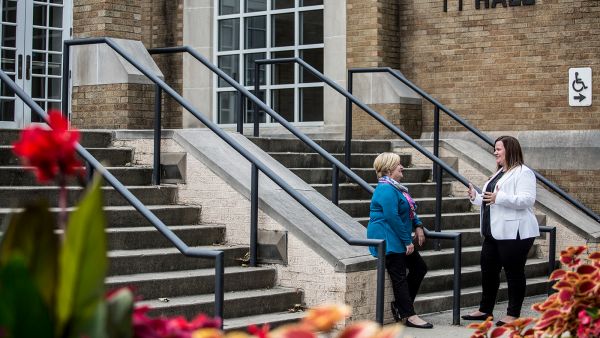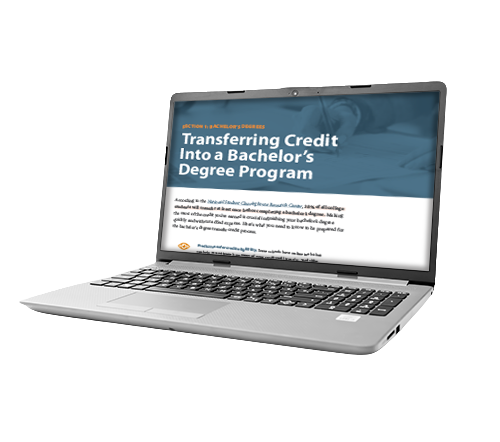-
Degrees
- Program Finder
-
Bachelor's Degrees
- Accounting
- Analytics
- Applied Management
- Business Administration
- Business Forensics
- Cloud Computing
- Communications
- Computer Science
- Criminal Justice Administration
- Cybersecurity
- Education
- Exercise Science
- Financial Management
- Financial Planning
- Forensic Accounting
- Health Education & Promotion
- Health Information Management
- Healthcare Management
- Human Resources Management
- Information Systems
- Information Technology
- Interactive Media Design
- Management & Leadership
- Marketing
- Nursing (RN-BSN)
- Operations & Supply Chain Management
- Psychology
- Public Safety Management & Leadership
- Social Sciences
- Sport Management
-
Master's Degrees
- Accounting
- Business Analytics
- Business Psychology
- Computer Science
- Criminal Justice Administration
- Cybersecurity
- Data Analytics
- Education
- Health Informatics
- Healthcare Administration (MHA)
- Human Resource Management
- Information Systems
- Information Technology
- Instructional Design & Learning Technology
- MBA Programs
- MSN Programs
- Marketing & Communication
- Professional Sales Leadership
- Public Administration (MPA)
-
Doctoral Degrees
- Associate Degrees
-
Online Degrees
- Online Learning at Franklin
- Accounting Programs
- Business & Leadership Programs
- Computer Science Programs
- Criminal Justice & Public Safety Programs
- Cybersecurity Programs
- Data & Analytics Programs
- Education Programs
- Finance Programs
- Healthcare Programs
- Human Resources Programs
- Information Technology Programs
- Marketing & Communications Programs
- Nursing Programs
- Operations & Project Management Programs
- Psychology Programs
- Public & Social Sciences Programs
- Online Learning Facts
- Degrees By Location
- Degrees By College
- Minors
- Degree Completion Programs
- Second Bachelor's Degrees
-
Microcredentials & Certificates
- Microcredentials
-
- Accounting Data Analytics
-
- Cyber Defense
- Cyber Governance
- Criminal Justice Leadership
- Data Analytics
- Nurse Educator
- Instructional Design
-
- Adult-Gerontology Primary Care Nurse Practitioner
- Family Nurse Practitioner
- Psychiatric Mental Health Nurse Practitioner
-
- Adolescence to Young Adult Education (7-12)
- Primary Education (PK-5)
- Intervention Specialist: Mild/Moderate (K-12)
- Middle Childhood Education (4-9)
-
Admissions
- Undergraduate Students
- Graduate Students
- Partnership Students
-
- Study in the U.S.
- Earn Your Degree Online
- Community College Students
- College Credit Plus
-
-
- Air Force
- Army
- Coast Guard
- Marines
- Navy
-
- Montgomery GI Bill® - Selected Reserves
- Montgomery GI Bill®
- Post-9/11 GI Bill®
- Vocational Rehabilitation and Employment VetSuccess Program
- Yellow Ribbon Program
- Spouses & Family
-
- Online Open House
-
- Associate Degrees
-
- General Bachelor's Degree
- Nursing (RN-BSN)
-
- Accounting
- Business Administration (MBA)
- Business Analytics
- Business Psychology
- Computer Science
- Criminal Justice Administration
- Cybersecurity
- Data Analytics
- Health Informatics
- Healthcare Administration (MHA)
- Human Resource Management
- Information Technology
- Instructional Design & Learning Technology
- Nurse Administrator (MSN-ADM)
- Nursing-Adult-Gerontology Primary Care Nurse Practitioner
- Nursing-Family Nurse Practitioner (MSN-FNP)
- Nursing-Generalist (MSN)
- Nursing-Psychiatric Mental Health Nurse Practitioner
- Public Administration
-
- Business Administration (DBA)
- Healthcare Administration (DHA)
- Instructional Design Leadership (DPS)
- Nursing Practice-Family Nurse Practitioner (DNP-FNP)
- Nursing Practice-Leadership Track (DNP)
- Organizational Leadership (Ed.D.)
-
- Criminal Justice Leadership
- Instructional Design
-
Tuition & Financial Aid
- Tuition & Fees
- Cost Estimate Calculator Tool
- Tuition Guarantee
- Undergrad Tuition Comparison
- Federal Aid & State Aid
- Institutional Aid & Private Loans
- Applying for Aid
- Community College Students
- Scholarships
- Payment Options
- Financial Aid Resources
-
Transferring Credit
- Estimate Your Transfer Credit
- How to Transfer Credits
-
- Partner Schools
- Pathway Portal
- Transfer into a Bachelor’s Degree
- Transfer into a Master’s Degree
- Transfer into a Doctoral Degree
- Transfer into an Associate Degree
-
The Franklin Experience
- Built For Working Adults
- Transfer Friendly
- Accredited University & Quality Degrees
- Fast & Affordable
- Student Success Stories
- Valued By Employers
- Nonprofit
- Student Support
- Career Development
-
About Us
-
-
- Columbus
-
-
-
- Become a Partner
- Current Partners
- Teachers
-
-
- Benefits for Community Colleges
- Benefits for Businesses
-
- Employer Partnerships
-
- Solutions
-
- Al Baha University
- MCBS
- Saudi Electronic University
- Current Partnerships
- Medical School Partnerships
- Nurse Preceptor
- Ohio School District Partnerships
-
-
- Board of Trustees
- University Leadership
- University Directory
- Faculty Profiles
- President's Welcome
- Admission Advisors
-
-
- CCNE Accreditation
- IACBE Accreditation
- State Authorization & Professional Licensure Information
- Our Mission & Values
- The Four Cornerstones
- Our History
- Consumer Information
- Safety & Security
- Bookstore
- Assessment
- Map & Directions
-
-
-
- Students
- Faculty & Staff
- Future Students
- Events
- News
- Request an Expert
- Presentations & Awards
- Faculty Awards and Recognitions
- Speakers' Bureau
- Event Hosting
-
- Careers at Franklin
-
- Title IX
- Community Standards & Student Code of Conduct
- Discrimination Harassment & Sexual Misconduct
- Anti-Hazing Policy
- Drug Free School & Communities Act
- Franklin Intervention & Awareness Team
- Filing Complaints
-
-
- Application & Review Process
- Cayuse
- CITI Training
- Research Review Categories
- Committee & Policies
- Documents, Resources & FAQs
- Research at Franklin University
- Programs & Support
- Resources
- Research Opportunities
- About Us
-
- Office of Accessibility Services
- Combating Copyright Infringement
- Financial Aid Statement
- Influenza Information
- Information Technology Acceptable Use
- Notice of Privacy Rights (FERPA)
- Privacy Statement
- Student Parking
- Tuition Refund Policy
- Vaccinations
- Inclement Weather Policy
- Transfer Credit Policy & Procedures
- Community Engagement
- Request Your Franklin Transcripts
- Urbana University Resources
- Give to Franklin
-
Earn college credit with proficiency exams
Demonstrate college-level learning and earn college credit for what you already know by testing for it or by showcasing your knowledge and experience.
1:1 Transfer Support
We’ll work with you to make sure you maximize all possible transfer credits
Finish Faster
Take fewer classes when you transfer credits toward your degree.
100% Online Classes
Earn your degree around your schedule.
Get College Credit for What You Already Know
Franklin wants to help you get all the college credit you deserve so you can save time and money on earning your degree. That’s why we’re pleased to accept proof of college-level learning in the form of proficiency exams.
Test out of some of your degree program courses and earn college credit by examination for passing CLEP, DSST and other proficiency examinations.

Submitting Materials for Evaluation
Most schools are well-equipped to evaluate prior classroom for course credit, while awarding credit for professional training, testing, certifications and other nontraditional learning proves to be more difficult. That’s not the case at Franklin. Franklin’s Learning Exchange is a convenient tool that enables you to collect certificates, military training, advanced placement, proficiency tests and other learning experiences for evaluation toward college credit. You can upload your materials at any point within the admission process or during your time as a student.
For information on how CLEP, DSST, FUPE, Advanced Placement (AP) testing and UExcel exams transfer toward Franklin course credit, email TheLearningExchange@franklin.edu
College Level Examination Program (CLEP)
The College-Level Examination Program or CLEP is a widely trusted credit-for-course examination program. CLEP currently offers 33 different exams, including a number of math, science and business disciplines.
With the exception of the combination multiple-choice and essay College Composition exam, each CLEP is a computerized, 90-minute, multiple-choice test.
Find CLEP exam guides at your local library, at the Franklin University Learning Commons, most major bookstores, and the CLEP website at www.collegeboard.com
DSST
DSST, formerly known as the Defense Activity for Non-Traditional Education Support (DANTES), is a nationally recognized prior learning assessment program. It lets you earn college credit for learning done on the job or through independent study -- including reading.
DSST currently offers 30 different exams in such subject areas as math, applied technology and business.Because Franklin University sets its own policies regarding qualifying credit, please talk to your admissions or academic advisor about your DSST eligibility before scheduling testing.
DSST examinations measure achievement one course at a time so you can study for one anytime, including while taking other courses.
Each exam is a computerized, two-hour, multiple-choice test (with the exception of public speaking, which also includes a 20-minute speech prep and presentation).
Find DSST study guides at the DSST website.
Franklin University Proficiency Examination (FUPE)
Franklin University Proficiency Examinations (FUPEs) are Franklin-created proficiency exams that assess prior knowledge and experience for course credit. FUPE course credit is only available at Franklin and is not transferrable to other institutions.
Franklin offers nearly two dozen different exams in a wide variety of subjects, however, Franklin does not offer FUPEs for subjects available through CLEP or DSST examination.
You may be eligible for a FUPE exam if your experience, training or independent reading is equivalent to what you would learn in the college classroom.
For more information or a list of available FUPEs, visit Franklin University’s Learning Commons.
Advanced Placement Testing
Take an advanced placement test at your high school and earn a score of three, four or five, and you could be awarded University credit -- even before you start college.
UExcel® Exams
Learn -- then earn -- equivalent course credit through Excelsior College’s UExcel® exams.
Approved for credit by Franklin University, UExcel proficiency exams let you earn some of your college credits by exam rather than by taking an online class or college course. UExcel offers dozens of lower- and upper-level credit-by-examination subjects. Learn more at www.excelsior.edu/exams/uexcel-home.
Reflection Paper (Created to meet APA guidelines)
- Why are you pursuing portfolio credit?
- Why are you a good candidate for portfolio credit?
- Résumé
- Letters of recommendation
- Address course outcomes
For Each Outcome
- Your background
- 2-3 specific examples
- Artifacts for support
- Demonstrate every and all learning outcomes
- Tie experiences to learning outcomes
- Include third-party verification when you can (supervisor, etc)

Free Guide for Transfer Students
Get the ultimate guide to maximize your college transfer credit so you can accelerate your completion time and lower your total tuition cost at every academic level.
Back to College Blog
Related Pages
- Degrees
- Microcredentials & Certificates
- Admissions
- Tuition & Financial Aid
- Transferring Credit
- The Franklin Experience
- About Us
- FranklinWORKS Marketplace
- Safety & Security
- Policy Information
- Your Privacy Settings
- Privacy Policy
- Terms of Use
- Careers At Franklin
- Sitemap
Franklin University
201 S Grant Ave.
Columbus, OH 43215
Local: (614) 797-4700
Toll Free: (877) 341-6300
admissions@franklin.edu
Copyright 2024 Franklin University
Franklin University is accredited by the Higher Learning Commission (hlcommission.org/800.621.7440) and authorized by the Ohio Department of Higher Education.
Franklin University is committed to being an inclusive community free from all forms of discrimination and harassment.